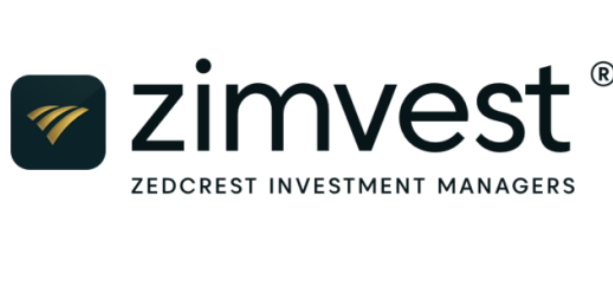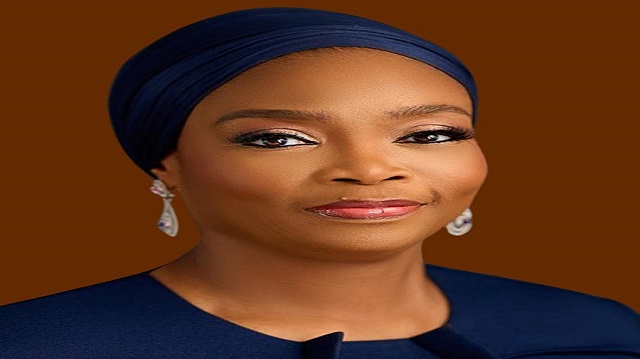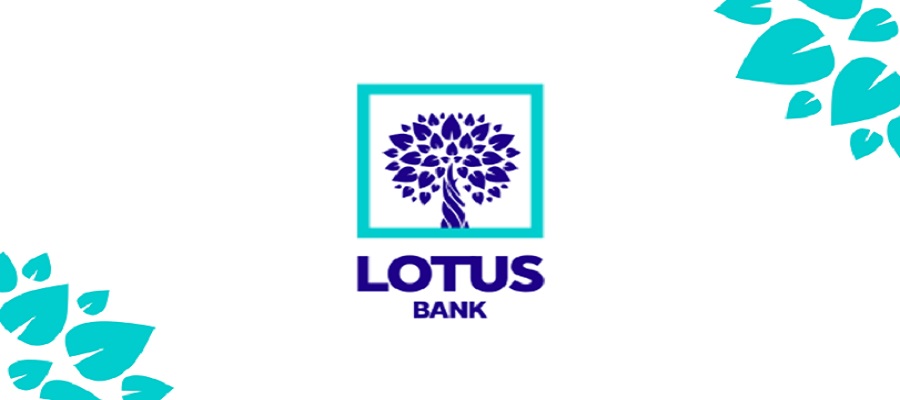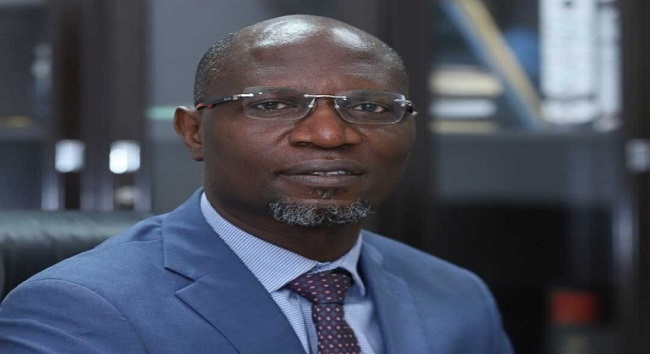E-Financial
Financial Experts Call for Reorganization of Nigeria’s Market Architecture

Stakeholders in the Nigerian Capital market, Asset Management and Banking Industries have called for a rethink of the nation’s economic philosophy and a reset of the financial market architecture.

This was part of the major takeaways from the “Zimvest Economy Conversations”, a thought-leadership series of Digital Private Wealth and Investment Management Firm, Zimvest (Zedcrest Investment Managers) held on over the weekend.
Giving the opening remark during the virtual event, Business Head of Zimvest, Gbenga Adigun, noted that investors are gravely concerned with investment returns in light of the current low yield environment while financial institutions are thinking of how their product development and service delivery should evolve with the changing needs of investors.
Bola Onadele Koko, CEO of FMDQ Group while delivering the keynote speech on the event theme “The Economic Landscape and Investor Preferences in Post-pandemic Africa”, talked about the toll the growing pandemic has had on African markets.
He laid emphasis on the slow down in key segments of the economy including the financial markets, tourism, remittances and foreign direct investments. He called for a rethink of Nigeria’s economic philosophy with clarity from the fiscal policymakers which will be critical for gaining investors’ confidence.
According to him, “Now is the time to develop new and ingenious ways to develop and drive the Nigerian financial market and in the continent at large. Private capital will especially be more essential as recent shocks have shown the limits of Governments’ abilities particularly in developing countries”, he said.
The capital market leader also stated that FX reforms will be critical for the Nigerian economy at this point; noting that trading activity in the Nigerian Fixed-Income and Interbank Currencies market is down by 55% due to economic slowdown linked to the Covid-19 pandemic.
All panelists in this first episode of the thought-leadership series pointed out that most investors were affected by the pandemic and are looking for further ways to diversify their portfolios that may end the year on a negative real return.
Speaking during the panel session, Abiola Adekoya, Wealth Expert and Ex-CEO at RMB Securities, stated that one of the key things that investors are concerned about in this era is the need for diversification, more liquidity and higher investment returns.
In her words: “A lot of investors have been focused on one product and this pandemic has shown that that is not enough. The nascent interest in alternative assets have shown that there is strong liquidity in the overlooked retail space and Investment managers should pay keen attention and develop alternative assets products, and reduce the reliance on the traditional Fixed income, Money markets and Equities offerings.
Buttressing Abiola’s position on alternative assets, Esiri Agbeyi, Partner and Head Private Wealth Services, PwC Nigeria, emphasized the need for investors to take keen interest in private equity and other alternative assets investments.
She shared a PWC survey on Family Offices. The survey revealed that 63% of family businesses leaned towards private equity as an investment portfolio. Local pools of private capital are important to drive economic development
Onome Komolafe, Divisional Head of Central Securities Clearing System (CSCS), stated the need for improved product development and differentiation, clear market segmentation and smart communication as tools that financial services firms can deploy in evolving with the changing consumer behavior.
She also pointed to premium service delivery and technological innovation as crucial to democratization of investment opportunities in Africa.
Ini Ebong, Group Executive, Treasury & Financial Institutions at First Bank, pointed out the present opportunity available for investors, regulators, institutions, market practitioners to reset Nigerian financial market architecture. He noted that this opportunity presents itself mostly around periods of crisis.
According to him, as markets develop, the investing public becomes more able to embrace risk and go for higher return instruments outside traditional bank based deposits.
“If you want high returns on investment, you must be willing to take on more risky investment products”, said Adetoun Dosunmu, Treasurer at FBN Merchant Bank. “Giving the highly specialized nature of investing, working with a regulated fund manager will be most beneficial to the investor in the long run and would protect against fraud and sharp practices from the teeming number of platforms offering untested investment opportunities”.
During his closing remark, the Founder of the Zedcrest Group and the Chief Host of the event, Saheed Adedayo Amzat, CFA, called on the Nigerian capital market stakeholders to unite to further capital formation in the country. He sounded a note of warning to Nigerians on suspicious wealth generation platforms.
“Many unsuspecting investors over the last three decades have lost their funds to unregulated institutions that promised unbelievable returns. All stakeholders in the sector need to speak up and inform the unsuspecting public about investment platforms. Our regulators need to do more with the support of all players in the Investment management space”, he opined.
The much-anticipated event lived up to its billings as over 1,150 participants engaged the speakers on investment challenges and opportunities they can tap into post-Covid.
Zimvest, the newly launched Investment Management subsidiary of Zedcrest, plans to be at the nexus of a continuing conversation series around Investment management and economic policy landscapes. The second edition of the series is to be announced soon.
A poll conducted during the event also shows that over 60% of participants prioritized “Capital Preservation” when choosing an investment option. Over 72% were concerned about inflation and exchange rate fluctuations and over 81% were concerned about Proven Track Record, Regulatory Compliance and Transparency when choosing an investment management partner.
E-Financial
The Alternative Bank, Utiva Partner on Scholarships to Boost Digital Skills for Women

The Alternative Bank (‘AltBank’) has announced the launch of The Alternative Bank-Utiva Women in Tech Scholarship, a landmark initiative designed to empower women entrepreneurs with digital skills, innovation design, and business growth training. The announcement was made during a high-level virtual convening held over the weekend to commemorate the International Day for Rural Women.

The scholarship programme, which begins in November 2025, forms part of the Bank’s wider Corporate Social Investment commitment to bridge gender and digital divides, equipping women with tools to scale their enterprises and strengthen their participation in the emerging digital economy.
Speaking during the event, Korede Demola-Adeniyi, Executive Director (South) at The Alternative Bank, described the initiative as both symbolic and strategic. “Women are the heartbeat of food systems, the lifeline of families, and the silent architects of community resilience,” she said. “Empowering rural women is a moral imperative as much as it is smart economics and a cornerstone of sustainable national growth. The doors of The Alternative Bank remain open, ready to partner, finance ideas, and co-create sustainable solutions that empower women and strengthen communities,” Demola-Adeniyi added.
Eyitayo Ogunmola, Chief Executive Officer of Utiva, expressed optimism about the partnership’s potential to redefine access to digital opportunities for women, saying, “At Utiva, we believe that when women are equipped with the right digital skills, they don’t just transform their businesses they transform their communities. This partnership with The Alternative Bank is about creating pathways for inclusion, innovation, and long-term economic empowerment for women who are shaping the future of enterprise in Africa.”
The virtual convening, themed ‘Rural Women and MSMEs: Driving Sustainability, Strengthening Economies, Securing Our Shared Tomorrow,’ brought together thought leaders, policymakers, and development partners to celebrate, empower, and advocate for rural women across Nigeria and Africa. The event aligned with the global observance of the United Nations’ Rural Women’s Day.
Hon. Gift Johnbull, Senior Special Assistant to the President on Community Engagement (South-South), reaffirmed the Nigerian Federal Government’s commitment to women’s empowerment. “Women in our rural areas are farmers because most of our rural communities are agrarian communities, and they are the reason why we have food in our cities and on our tables. They make up to 70% of our food system in this country and worldwide. Yet they are facing barriers like access to education, finance, and other productive opportunities. We acknowledge that and are making progress to ensure these barriers are totally eradicated from our society,” she stated.
From the United Nations, Osalobo Osemhenjie, Programme Specialist at UN Women, highlighted ongoing interventions supporting women’s economic advancement and called for a joint stakeholder effort to address existing gaps. “Let us commit to changing this narrative by investing in rural women’s leadership, expanding access to finance, fostering digital and entrepreneurial skills, [providing] mentorship programmes for young women and consultancy services through affirmative procurement. Only then will we unlock a future that is not only sustainable but equitable,” she said.
A key highlight of the event was the thematic presentation by Kemi Ayanda, Economic Development and Trade Strategist for Africa and the Middle East. She challenged participants to rethink traditional development models, asserting that true transformation begins not with funding but with reimagining systems that recognise resilience as an economic asset and women as critical stabilisers.
Other notable speakers included Her Excellency Hajia Fatima Dikko Radda, wife of the Executive Governor of Katsina State; Mrs. Ellen T. Johnson, Country Head of Commonwealth Businesswomen Africa (Gambia); Judith Libaisi Kayoni, Global Rural and Social Development Expert (Kenya); Dr. Hadiza Yaro, Anglophone West Africa Sales Manager, SAKATA Vegetables Europe SAS, and Ameena Buhari-Mohammed, Private Banking & Wealth Management Lead at The Alternative Bank.
The Alternative Bank’s observance of the International Day for Rural Women underscores its mission to drive sustainable, inclusive, and ethical finance models that unlock opportunities for women-led enterprises, strengthen local economies, and contribute to Nigeria’s long-term digital and economic resilience.
E-Financial
Lotus Bank Drags 45 Banks to Court over Alleged ₦1.1Bn Fraudulent Withdrawals

A Federal High Court sitting in Ikoyi, Lagos, has been asked to intervene in a suit filed by Lotus Bank Limited seeking to recover ₦1,133,808,604.31 allegedly withdrawn by hundreds of its customers following a system failure that hit the bank’s electronic payment platform in July.

The bank, in its motion on notice filed before Justice Daniel Osiagor, alleged that 718 customers fraudulently withdrew and transferred funds exceeding their account balances after it experienced system failure codename ‘a system glitch’, which occurred on July 20, 2024.
The glitch, the bank explained, resulted from a rollback fix on its E-Bills Pay platform, which temporarily disabled automatic debit processes.
The bank also admitted that during the ‘system failure’, 718 customers who made successful withdrawals and transfers from their accounts knew that they did not have the amounts in their accounts with the bank.
To salvage the unlawful withdrawal caused due to the ‘system glitch’, the 45 banks were dragged before the court by Lotus Bank over the massive financial woe.
The suit according to Lotus Bank is pursuant to Order 3 Rules 1 6, and 9 of the Federal High Court (Civil Procedure) Rules 2019 and under the court’s inherent jurisdiction.
It ask the court for the following questions for determination: “whether having regard to the Central Bank of Nigeria Guideline No. BPS FIRGEN/CIR/02/004 of 2015; BPS/FIRGEN/CIR/05/011 of 2018; Section 10.2.2-10.2.4, 10.3, 10.4 of the CBN Regulations, the Ist to 45th Defendants are not mandated to place a lien on the sums standing in the respective accounts of the 1st- 45th defendants’ customers/account holders.
“Whether having regard to the Central Bank of Nigeria Guideline No. BPS/FIRGEN/CIR/02/004 of 2015; BPS/FIRGEN/CIR/05/011 of 2018; particularly Section 10.2.1 of the Regulations, the Plaintiff is not entitled to a refund of all the funds illegally transferred into the respective accounts of the 1st-45th Defendants’ customers/account holders in the document. marked as Exhibit 1 attached herewith and domiciled with the Defendants where such funds are still available in the customers’ accounts
“Whether having regard to the Central Bank of Nigeria Guideline No. BPS/FIRGEN/CIR/02/004 of 2015; BPS/FIRGEN/CIR/05/011 of 2018; Section 10.2.2-10.2.4, 10.3, 10.4 of the CBN Regulations, where the sums in the customers’ accounts are not sufficient to cover the sums illegally transferred, the 1st-45th Defendants are not mandated to place a lien on any of the sums illegally transferred into the accounts of the customers/account holders domiciled with one or more of the Defendants and more fully shown in the document marked as Exhibit 1 attached herewith, until the entire sums are fully recovered and repaid to the Plaintiff.”
The bank states that upon the determination of the above questions, pray the court following reliefs against the listed banks jointly and severally: “a declaration that by the Central Bank of Nigeria Act 2007, the Central Bank of Nigeria Guideline No. BPS/FIRGEN/CIR/02/004 of 2015; BPS/FIRGEN/CIR/05/011 of 2018; Section 10.2.2 -10.2.4, 10.3, 10.4 of the CBN Regulations, the 1st-45th Defendants has a duty and obligation to protect the banking and payment industry from abuse by dishonest users and to take reasonable steps to forestall any damages of the banking and – payment system whenever any abuse or fraud is within their knowledge or has been brought to their attention.
“A declaration that having regard to the Central Bank of Nigeria Guideline No, BPS/FIRGEN/CIR/02/004 of 2015;
BPS/FIRGEN/CIR/05/011 of 2018: Section 10, 2.2-10.2.4, 10.3, 10.4 of the CBN Regulations, the Plaintiff is entitled to a refund of all the funds illegally transferred into thefendants customers/account holders more fully shown in the document marked as Exhibit 1 attached herewith where such funds are still available in the customers’ accounts.
“An order directing the 1st-45th defendants to immediately reverse and pay to the Plaintiff the sums wrongfully, illegally and illicitly debited from the Plaintiff and transferred into the 1st-45th Defendants customers’ accounts listed in Exhibit 1 in the aggregate sum of N1,133,808,604.31 (One Billion, One Hundred and Thirty-Three Million, Eight Hundred and Eight Thousand, Six Hundred and Four Naira, Thirty-One Kobo) domiciled with one or more of the 1st-45th Defendants or any amount subsequently recovered until the entire sums are fully recovered.
“And such further or other orders as the Court may deem fit to make in the circumstance.”
Lotus Bank supported the motion with 19 paragraphs affidavit deposed to by Gbenga Ojerinde, a Fraud Investigation Officer with the bank. The suit is also attached with a written address and some documentary exhibits.
Some of the banks listed as defendants in the suit, have filed their responses to suit.
However, the Presiding Judge, Justice Daniel Osiagor has adjourned the further hearing of the suit to December, 2025.
Parts of the averments in the affidavit read: “On 20th July 2024, the Plaintiff experienced a system glitch due to a rollback fix carried out on its E-Bills Pay platform. The said rollback fix was carried out to address a previous complaint but led to unintended and unexpected behaviour that allowed the Plaintiff’s customers to initiate transfers to other banks and financial institutions without the accounts of those customers being debited The outcome was that certain customers made multiple transfers to account? held with the Defendants in excess of the balances those customers had in their accounts with the Plaintiff.
“This glitch affected 718 customers of the Plaintiff who made successful withdrawals and transfers from their accounts knowing that they did not have in their accounts with the Plaintiff the sums they were transferring and succeeding in those transfers only because their accounts were not being debited.
“The initial financial exposure of the Plaintiff from this incident is about N1,133,808,604.31 (One Billion, One Hundred and Thirty-Three Million, Eight Hundred and Eight Thousand, Six Hundred and Four Naira, Thirty one Kobo) Now shown to me marked Exhibit 1 is the schedule providing detailed information of the affected customers of the Plaintiff, the Refund Amounts and the banks/other financial institutions warehousing the funds of the affected customers.
“The Plaintiff reported the issue of the system glitch and the resulting Erroneously Retained Credits to the Nigeria Inter-Bank Settlement System Plc (NIBSS), which is the Nigeria central switch responsible for the interoperability of the various players in the banking sector, including banks, mobile service operators, non-banking financial institutions, payment terminal providers, card acquirers, etc. And their customers.
“However, the said beneficiaries were not debited by the Plaintiff for the said transactions and in lieu retained the credit values. Consequently, the Plaintiff is entitled to receive the value of the respective Refund Amounts from the accounts of the beneficiaries of the Erroneously Retained Credits.
“I know that the courts provide a remedy where there is a wrong and that an Oder of this Honourable Court is required to remedy the Plaintiff’s situation to enable the Plaintiff recover the erroneously Retained Credits in the accounts of the affected beneficiaries.
“I also know that the justice of this case demands that the beneficiaries of the” Erroneously Retained Credits are prevented from unjust enrichment in the circumstances of this matter.
“The plaintiff seeks the reliefs sought in this Originating Summons to place restrictions on the said accounts and reverse the Erroneously Retained Credits to the Plaintiff,
“know it is in the interest of justice, equity and fairness that the reliefs sought by the Plaintiff are granted by this Honourable Court.”
E-Financial
SEC Says FATF Delisting will Boost Investor Confidence in Nigeria

Emomotimi Agama, Director General, Securities and Exchange Commission (SEC) has applauded Nigeria’s removal from the Financial Action Task Force (FATF) grey list, describing it as a clear reflection of the country’s renewed policy direction and commitment to transparency.

FATF on Friday announced the delisting of Nigeria from its grey list of countries with deficiencies in anti-money laundering and counter-terrorism financing frameworks.
Speaking during a television programme, Agama, said the development would significantly enhance investor confidence and attract more foreign investments.
“It means so much for us in the capital market; it means so much for us in the financial system. It brings about something that we have been craving for – investor confidence.
“The release of Nigeria from the FATF grey list means that investor confidence would be boosted. Delisting from that grey list sends a very strong signal to investors and trading partners that Nigeria has made significant progress in strengthening its anti-money laundering and countering of financing of terrorism regulations,” Agama said.
He described the delisting as a “welcome call to new investments,” saying it would further strengthen productivity and growth in the Nigerian economy.
After implementing a 19-point action plan, the FATF removed Nigeria from the list more than two years later, acknowledging the country’s progress in tightening its AML/CFT framework.
Agama described the development as a major milestone in Nigeria’s journey towards economic reform, institutional integrity, and global credibility and commended Hafsat Abubakar Bakari, Director/Chief Executive Officer of the Nigerian Financial Intelligence Unit and her team for their diligence in implementing the country’s action plan.
According to him, “The NFIU was in the fore front of this initiative and we commend their commitment which has earned Nigeria global recognition for its strengthened institutional framework to tackle financial crimes”
He also praised the efforts of the National Security Adviser, the Secretary to the Government of the Federation, the Ministers of Aviation, Budget and Economic Planning, Defense, Foreign Affairs, Solid Minerals, and State for Finance, as well as the leadership of the National Assembly and the Judiciary.

 Telecom3 days ago
Telecom3 days agoUNICEF, GSMA Unite with Partners to Launch Africa Taskforce on Child Online Protection to Safeguard Children in the Digital Age

 Broadcasting3 days ago
Broadcasting3 days agoNCC Calls for Professional Guidelines on Software Use, Support for Copyright Enforcement

 General News3 days ago
General News3 days agoFG to Train One Million Youths under TVET for Entrepreneurship, National Development

 E-Business3 days ago
E-Business3 days agoNOTAP to Crackdown on Unregistered Technologies in Nigeria

 Broadcasting2 days ago
Broadcasting2 days agoMultiChoice to Delist from JSE after Canal+ Takeover

 E-Financial3 days ago
E-Financial3 days agoSEC Puts Nigeria’s Cryptocurrency Transactions in One Year @ Over $50Bn

 E-Financial2 days ago
E-Financial2 days agoLotus Bank Drags 45 Banks to Court over Alleged ₦1.1Bn Fraudulent Withdrawals

 E-Financial3 days ago
E-Financial3 days agoPolaris Bank restates support for SMEs, commissions EveryDay Supermarket in Yenagoa



























